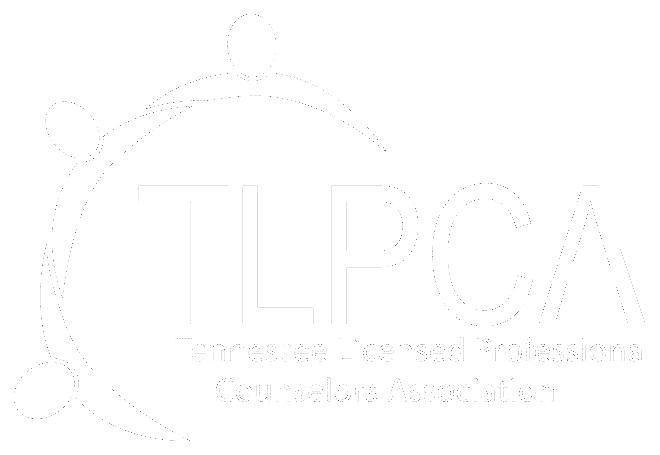Unite
History of TLPCA
TLPCA – The Birth of an Association
by Susan E. Hammonds-White, EdD, LPC/MHSP
TLPCA was born on the back of a napkin in the fall of 2005 as Kay Arnold, Cindy Sneed and I discussed the need for a professional association in Tennessee that was focused exclusively on the needs of mental health counselors. What was the back story? Why did these leaders think this step was necessary?
The passage of legislation in 1991 that established licensure for professional counselors was at first perceived as a success. However, it soon became apparent that this legislation actually severely limited the ability of counselors to diagnose and treat mental disorders. Professional counselors could only treat “conditions not attributable to a mental disorder.” This threat to the ability to make a living and to prevent trained counselors from using their education galvanized opposition and created the opportunity for the development of appropriate licensure.
The Tennessee Counseling Association was essential to the passage of the 1995 legislation that established the Licensed Professional Counselor/Mental Health Service Prover designation. Counselors across the state became active and legislation that established the Mental Health Service Provider designation was successfully passed.
However, over the next ten years the Tennessee Mental Health Counselors Association, the division of TCA that focused on mental health issues, continued to struggle with membership and activism. Many LPC/MHSPs worked hard to activate membership in TMHCA, but the structure of the TCA was heavily weighted toward school counselors – this made it very difficult to respond to the needs of LPCs in terms of training and continuing education. These issues came to a head in the fall of 2005 when it became clear to a small group of TMHCA members that our own organization was needed.
After that initial meeting a plan of action that involved a number of other counselors was created; the group began to draw up a plan for the creation of an association whose mission was to unite, advocate for and train licensed professional counselors.
Today TLPCA has almost 800 members and active chapters in eleven regions in the state of Tennessee. TLPCA has a strong relationship with the Tennessee Association of Marriage and Family Therapists (TAMFT) and the Tennessee Association of Pastoral Therapists. In recent years, TLPCA and TNAMFT have funded a lobbyist to help with legislative issues. TLPCA is also a division of the American Association of Mental Health Counselors, as is TMHCA – a unique solution to a two-state association issue.
Most recently TLPCA has been instrumental in the passage of legislation enabling the creation of the Counseling Compact, an answer to the perennial problem of licensure portability. Tennessee has a seat at the table for the creation of rules for this process, thanks in part to the successful involvement of TLPCA in passage of this legislation.
My own involvement with all of these issues has spanned the course of my own career. The legislation passed in 1991 threatened my own livelihood, and as a result I became a leader in the push for appropriate licensure for counselors. After the passage of the independent licensure law I served as a consultant to the LPC Board, was subsequently appointed to it by Gov. Bredesen and was reappointed by Gov. Haslam. I served three terms, leaving the Board in December of 2021. I served as chair of the Board for ten of those years. As a Board member I was also part of the American Association of State Counseling Boards, and served as president of that organization from 2013-2015; much of my term was devoted to challenges to counselor professional identity coming from doctoral-level psychology programs that now want their master’s level graduates to be licensed as counselors, and to the perennial problem of portability of licensure.
Licensed Professional Counselors have as of this writing finally won eligibility for Medicare Reimbursement, a battle long fought and finally won in the last Congress. Challenges ahead involve the threats of unlicensed practice of counseling by coaches and the proliferation of teletherapy through apps such as Better Health.
TLPCA, born out of necessity, continues to serve the needs of LPC/MHSPs in Tennessee and in the rest of the United States. I salute all of the leaders who believed in the organization and birthed it seventeen years ago. As the torch of leadership passes to the next generation, I hope that this brief history will help those to come in understanding where TLPCA came from as well as how it will continue to serve counselors in Tennessee in the years to come.

